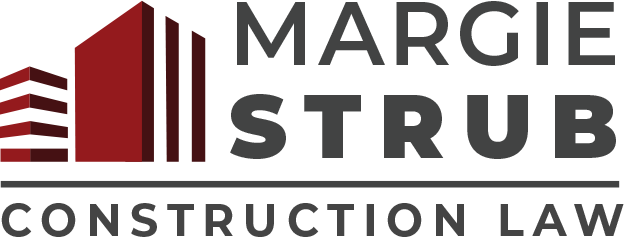“Fixed Price” or “Not Fixed Price”? That is the question.
Key Takeaway
Unless there is evidence to the contrary, an agreement for the construction of a home for a stated price will likely be considered to be a fixed price contract, rather than a budget for a cost+ contract, and the onus of proving entitlement to additional costs will sit with the contractor.
In the recent decision of Gibowic v. Sholzberg-Tsilker,1 an agreement entered into between a seller/builder and purchaser for a custom-built home (pre-construction) was found to be a fixed price contract notwithstanding that the scope of work was relativity ambiguous and notwithstanding the fact that the contractor believed it to be a cost+ contract with an agreed-upon budget.
The Background
In August 2017, the purchasers, Michelle Sholzberg-Tsilker and Edward Tsilker (the “Tsilkers”) saw a listing for a property in Etobicoke. The listing contemplated the demolition of the existing home and the construction of a custom-built home. The property was owned by Darius and Violeta Gibowic. Darius Gibowic (“Gibowic”), a builder, had obtained drawings and permits before listing the property.
In September 2017, the Tsilkers walked through two residential renovation projects that Gibowic had previously completed.2 The Tsilkers met Gibowic and discussed features, fixtures and appliances.3
In October 2017, the parties entered into an agreement of purchase and sale (“APS”).4 It was understood by the parties that the construction costs would form part of the purchase price for the property, which was $2,850,000.5 Schedule A of the APS required the parties to execute a separate construction contract and Schedule C specified features the Tsilkers wanted.6
The work proceeded and Gibowic would periodically send the Tsilkers budget sheets. While the first four budget sheets showed the project was less than the total budget, the fifth and subsequent budget sheets showed overruns. Ultimately, the project went overbudget by $101,424.7
Thereafter, a dispute arose. The issues before the Court included the type of contract entered into, that is a fixed price contract or a cost+ contract, and whether the Gibowics were entitled to charge for extras.8
The Type of Agreement
With respect to the dispute about the type of contract, Gibowic argued that the non-construction portion of the APS was fixed price and the construction portion was cost+. The Tsilkers argued that the construction portion was fixed.
In determining the nature of the contract, Associate Justice Wiebe, applying the principles of contractual interpretation set out by the Supreme Court of Canada in Sattva Capital Corp. v Creston Moly Corp.,9 pointed to the following in concluding that there was a fixed price arrangement:
– The construction contract, which was incorporated by Schedule A of the APS, referred to a fixed figure for the construction portion (e.g., the cost of construction and material will be $900,000). The figure was not described as a budget or estimate.10
– There was a description of how the cost of construction was to be paid in specified installments (e.g., $350,000 at signing; $550,000 to be paid in equal installments on specified dates).11
– The construction costs formed part of the overall price of the APS which contemplated a fixed arrangement for sale. The references to “adjustments” at closing were for specific items such as mortgage interest, rents and utility and did not refer to increases or decreases in the Gibowic’s construction costs.12
– The only parts of the APS that contemplated a change in construction pricing were (i) that any upgrades would be provided at builder’s costs, and (ii) that any work outside the scope required prior written authorization of the owners.13
– The idea of a fixed price contract was consistent with the evidence of what the parties expected at the time the APS was entered.14
– The APS was sufficiently detailed to create a defined scope despite the considerable uncertainty (e.g., the design was prepared before listing, the design was based on other builds, there was a discussion about scope, and there were details in the Schedule C and construction contract).15
In arriving at this conclusion, Associate Justice Wiebe found that there was sufficient evidence to show that the parties agreed upon a fixed price for a defined scope notwithstanding that the scope contained considerable uncertainty16; the purchasers had limited knowledge of the original underlying design for the other builds17; and, many of the clauses were open-ended (e.g., the purchaser shall have the option to fully customize the interior).18
Builder’s Entitlement to Extras
In determining the entitlement to extras, Associate Justice Wiebe found that because the contract included a provision that prohibited changes to the scope without prior written authorization from the owners, there was an explicit requirement on the builder, the one with the knowledge of the design and budget, to obtain the owners prior written approval for all changes for which the builder intended to charge.19 Moreover, the onus on the builder to obtain prior written approval was particularly heavy in this case because of the ambiguity in the scope of work.20
As Gibwoic had not obtained prior written approval for extras (aside from one change order which was paid),21 he argued that the extras were verbally approved that the Court should apply caselaw which suggested that an owner may be liable for extras if the owner knows changes are taking place and acquiesces to the work 22 or if there is a pattern of payment by the owner for extra work that is orally approved.23
While Associate Justice Wiebe considered the caselaw put forward by Gibowic, His Honour found that there was no evidence of approvals in relation to the specific change orders other than the uncorroborated evidence of Gibowic.24 Therefore, Gibowic failed to prove his entitlement to payment on the extras.
Conclusion
What is apparent from Gibowic is that both owners and builders/contractors should take care to ensure the scope of work and pricing arrangement is clear in their contracts.
Owners should want to ensure that what is included in the scope of a fixed price agreement is clear, including the quality of finishes (for which prices vary widely). This will avoid future disagreements and questions such as, are baseboards included25, are the wine room racking, millwork and wall panels included26, or are the lighted mirrors included.27 It will also avoid arguments regarding the type of hardwood flooring, the type of appliances, the type of plumbing fixtures, and other finishing items.
By the same token, builders/contractors benefit from a clear scope so that any changes by the owners which result in increased cost to the builder can be recovered.
At the end of the day, all parties benefit from a clear and detailed contract.
1 Gibowic v. Sholzberg-Tsilker, 2022 ONSC 1716 (Ont. Associate Justice) [Gibowic]
2 Ibid, at para 5.
3 Ibid, at para 7.
4 Ibid, at para 11.
5 Ibid, at paras 7 and 10.
6 Ibid, at para 10.
7 Ibid, at para 24.
8 Ibid, at para 30.
9 Ibid, at para 47. See Sattva Capital Corp. v. Creston Moly Corp., 2014 SCC 53
10 Ibid, at para 50.
11 Ibid.
12 Ibid, at para 51.
13 Ibid, at paras 53 and 61.
14 Ibid, at para 54.
15 Ibid, at paras 58 and 59.
16 Ibid, para 58.
17 Ibid, at para 60.
18 Ibid, at para 59.
19 Ibid, at para 61.
20 Ibid.
21 Ibid, at paras 12 and 79.
22 Ibid, at para 76. See D & M Steel Ltd. v. 51 Construction Ltd., 2018 ONSC 2171 (CanLII)
23 Ibid, at para 78. See Colautti Construction Ltd. v. City of Ottawa, 1984 CanLii 1969 (ON CA)
24 Ibid, at para 69.
25 Ibid, at para 38.
26 Ibid, at paras 96-101.
27 Ibid, 105-107.



